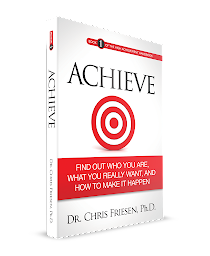The Lance Tamashiro Podcast: FEAR, Motivation, Goals & Success with Dr. Chris Friesen
FEAR, Motivation, Goals & Success – Dr. Chris Friesen

Today we’re going to be talking about success and we’re going to be talking about it from a whole different angle that’s going to apply to you a little bit differently. Get you some tips, tricks, and strategies that you can start using today and give you a great book that you’re going to want to check out.
Our guest today is Dr. Chris Friesen who’s a psychologist and he’s always been fascinated about what makes people successful, perfect for what you need to hear today. He’s a licensed clinical, forensic and neuropsychologist, but now he primarily focuses on helping professional and national Olympic-type people and up and coming elite athletes as well as other high achievers such as professionals, entrepreneurs, executives, academics, and writers achieve their personal and professional potential. He’s just got this book that’s come out that we’re going to talk about today and most importantly how we can get you guys becoming successful. Dr. Friesen, I totally am excited to have you here and glad you could make it.
Chris:
Thanks so much, Lance. I’m excited to be here as well.
Lance:
The first thing that I want to start out with is what do you see … I know you primarily work with athletes, I know you’ve got a successful business there. Then you’ve got this book that’s about performance in general, so what are the similarities that you see between athletes and then business people and high achievers really in any category?
Chris:
Yeah, that’s a great question. There are a number of books written about what are the keys to success and high achievement and I’ve read probably most of them, if not all of them, and it’s been a big interest of mine. To me it doesn’t really matter which endeavor you’re pursuing to achieve big things whether you’re an entrepreneur, whether you’re an Olympic athlete. The psychological aspects are actually very similar. There are a number of principles, I guess you could say, that really differentiate those who end up doing really well in whatever endeavor they’re pursuing and those who don’t.
One of the main ones is persistence which is obviously hard work, working hard in spite of setbacks. Another one is goal-setting, proper goal-setting. Another one that a lot of self-help books don’t talk about, but my book does is knowing your personality. I call them your basic personality tendencies which have a large, biological component in your brain. Anyone who’s had more than one kid, child, will know that they tend to come out a little bit different despite having very similar environments. These are examples of how our temperaments, we call them temperaments when we’re children and these exist from birth, but they’re highly moulded throughout life.
One misperception is that there’s this perfect personality profile in terms of
these basic dimensions that make people successful. My argument is that if you understand your personality and you basically adapt to your personality, change parts of it to some extent if needed and basically really adapt it to your circumstances and your goals you’re going to go a lot further regardless of what your personality profile looks like. There are other key activities people do, like I said working hard.
One of the best differentiators is that people who are really successful they tend to live their lives based on their goals and values, not on their immediate circumstances, moods, and that sort of thing, their fatigue levels. An example of that is basically people who are really successful tend to get up and do their work, whatever it may be whether it’s writing a book, whether it’s going to the gym to train for your sport, whether it’s to make some calls or work on your website, work on your mailing list. These people no matter how they feel, if they’re tired, if they’re in the mood or not they do it anyways. That is probably the number one differentiator between people who are successful in achieving big things and those who aren’t.
Lance:
One of the things that I love and the book … When I looked at it and the book’s called ACHIEVE: Find Out Who You Are, What You Really Want, And How To Make It Happen, it was almost like I was looking at it and I’m thinking most self-help, success books, these type of things, they all start with make it happen, here’s what you do to make things happen. What I really liked about the way that you approach things is you start and you mentioned this, they live their lives based around the goals or the things that they want to achieve.
One of the things that I always try to follow is happiness, goals, whatever it is is if you align your actions with those goals, with those values, whatever they are, you’re going to achieve this type of happiness. I watch so many people, I’m sure you see this all the time, too, where they say I want to be successful at X, Y, and Z and then like you said they don’t get up and go to the gym, they don’t wake up and do the work that they don’t want to do. I love that you do this.
When you talk about your book especially in how you lay this out, starting with finding out who you are, what you really want, and making it happen, how does somebody start discovering these things? Because I think that so many people set themselves up especially in business and entrepreneurship for failure before they start because they say things like I want to earn $10,000 a month and then they never achieve that.
Chris:
Yes, we’ve all heard this from almost every self-help book in this genre that you have to know your why. That’s a big part of the first half of the book is really finding out your why, but I still think there’s a step before that which is knowing your personality which most self-help books don’t go into. I did my undergrad thesis, my master’s thesis and my PhD dissertation all about looking at what we call normal personality and how we differ. These traits that I talk about, these dimensions, these five basic personality dimensions they exist across cultures.
I really thought it was important to really focus on these early steps because people tend to not succeed when they’re working towards things that weren’t really right for them. That’s why you really got to know your core personality. Then you got to find out what your values are, what’s really, really important to you. Then after that the next step is to figure out what your strengths are. Always be aware of your weaknesses because there is a tendency right now to really focus on your strengths. I think that’s great, but you can’t ignore your weaknesses. That’s a mistake because our weaknesses are … We’re always as strong as the weakest link, you know that saying.
Once you really figure out your interests, your passions and only then once you have all those things, your personality, your values, your strengths, your passions, your interests then you can work on what is my mission, what’s my purpose, so what are my big, big goals. You can come up with a mission statement, for example, similar to Stephen Covey’s, The 7 Habits of Highly Effective People. He really popularized that idea of coming up with your own personal mission statement. Only then, I believe, that you can really focus on the right goals.
The next couple of chapters or sections in the book are setting goals and then day-to-day how to make it happen knowing all this stuff about yourself. It’s really coming up with these early steps of really figuring out who you are and what you really want and only then are you going to have the motivation, I guess you could say. If you put it into one word you’re going to have the proper motivation to succeed. That motivation if it’s not there, in other words, you’re pursuing something that’s really congruent with who you are, what’s really important to you and what you want to do with your life and did the deep thinking that’s involved then you’re going to be able to put in the effort.
You’re going to be able to bear almost any how as Nietzsche says. He who has a why can bear almost any how. In other words, when you have a strong, burning reason to do something you’re going to be able to consistently pursue that and deal with setbacks with less difficulty than someone who hasn’t done the hard work at the beginning of really figuring out what’s important to you and getting that base first.
Lance:
I love that whole part about the setbacks and being able to get through that because … I’m sure you see this with athletes or business people that you work with where people come up against whatever it is, bump in the road, and then they stop or they focus on the wrong stuff and they don’t get there. I think that having this why and especially the way that you put it is so important for that.
One of the other things that I wanted to know if you see, run into, or help people get over this is just flat out fear. It seems so many people whether they’re afraid to make a leap into doing something, whether they’re afraid to be successful, whether they’re afraid to fail, all of these different fears come into play when I watch people building their business. How can people really come to terms with … I think part of it, too, is people are afraid to admit of the fears that they actually have. We live in this society of Facebook where everything’s great, of coaches where why aren’t you more successful than you are. How can people come to grips and really figure out what their fears are and then get through those, so that it’s not holding them back?
Chris:
Yeah, that’s another great question. The first step I think is to really understand and accept that fear is part of the game. You’re going to feel fear, you’re going to feel doubt. I work with high-level athletes, professional, Olympic. They all have fear, everyone has fear. There’s some people who are a little bit fearless and actually they often don’t do as well, I can talk about that for a number of reasons, but you need to have fear. Fear is really a motivator, fear is natural. First of all, always remember it’s natural. When you go into a situation or these fears crop up and you feel it, you feel anxiety, you feel self-doubt, you want to thank your brain for doing that because it’s supposed to do that. Your brain is designed to not look at everything optimistically all the time and it’s actually not a desired state.
One example is if you had no fear and I have an article on my website that talks a little bit about this. When you have no fear it leads to complacency. If you were very confident, you had 100% confidence, you were very optimistic about your ability to achieve a particular goal and had no fears that’s actually not a good place to be although everyone seems to think and, of course, I understand, too, because I felt this way, too, seems to think that that’s the ideal state of mind. This pure optimism, no fear, strong, strong confidence that no problem, I’m going to achieve this and even visualizing yourself achieving the end result. The research shows and the reality is you need the fear, you need the self-doubt to actually motivate you to do something.
One quick example, let’s just use a sport example. If you’re an Olympic athlete and in your sport you think you’re the best. You have the Olympic trials let’s say coming up. Now we have the Olympics actually coming up, so you have the Olympics coming up and you have no fear, no doubt, you know you’re going to beat the competition. What are you going to do when 5 am comes around, your alarm goes off and you’re exhausted and you don’t really want to get up. You’re not going to have the proper motivation to get up. If you have some self-doubts like there are other people that may beat me, if I don’t do X, Y, and Z I could lose then you are actually going to not have the motivation to do the work that’s necessary to be prepared for it.
Fear first of all is a really, really good thing. That’s the biggest misconception, I think, is people’s perception that they shouldn’t have any fear. They should be all optimism and it’s perpetuated by some self-help books and, of course … That’s again the first step and then it’s really figuring out am I doing the right thing. Your fears of success will become less or reduced if you are really … You’ve done the work to figure out who you are, what your values are, what your purpose and mission is and at this point in time this is the best thing you should be doing with your time and you’re comfortable with that. You’re going to be more likely to be able to face those fears because you have confidence that it’s going to be hard, I’m going to doubt myself, but I’m doing the right thing. This is what I should be doing with my life.
Lance:
It’s interesting because I think that just having somebody like you or even being aware that this is okay. This is freeing and liberating. People should be hearing this not as fear is going to be this thing that is going to paralyze me which we see so many people do. I think that having the permission to understand that it’s natural and not only natural, but can be a good thing to keep us motivated is really everybody listening. Take that to heart as far as you have permission and you’re normal if you’re feeling these things. Now your job is to figure out how to use this to your advantage rather than being stuck paralyzed because you think you’re not supposed to be feeling this way.
Chris:
That’s exactly right. One thing that comes up is the … It’s a little bit different, but the anxiety people experience in a performance situation. The principles are still the same when I talk about accepting your anxiety and your fears and not fighting it and not being mad at yourself for having those experiences because as soon as you fight it we know the brain works this way. The anxiety only increases because you’ve become self-critical. You start to think I shouldn’t feel this way or you try to squash the thoughts or make them go away and they just keep popping back into your mind.
Again you need to know that’s natural. Of course, if you’re at the level of panic and you’re about to compete in a sport or you’re presenting to potential backers like your entrepreneurial venture or you have a big job interview your performance can go down if your anxiety’s too high. When you acknowledge and accept it it’s a paradoxical effect. Our anxiety tends to go down naturally, but if you fight it it goes up.
There are strategies that you can do to put yourself in a better physiological state that will bring your anxiety and nerves down to a little bit more tolerable level by certain breathing strategies, something called progressive muscle relaxation strategies. These are things you can do in the moment that would be really effective. Fear can be debilitating in performance situations, but again I think the biggest …Like you said the most important thing to do is really to accept that this is natural because as soon as you give yourself permission to feel that way then you can actually use that as energy, as motivation.
Lance:
Going through this, getting down what your personality is, figuring out your why, the next thing I wanted to ask you about is the whole idea of goal-setting and setting the right goal and how people should actually go about this because my experience in my own life and in watching other people is … Again I’ve done this before, I figured out my personality and what my real why was and part of it’s in that, but I always tend to judge … I failed before, so I’m going to fail again. I end up setting goals that are either too big which puts me back in that cycle of I’ve failed before, so I’m going to fail again or too small because I’m afraid of that failure which is a lot of times because I don’t understand why I’m setting the goal that I’m setting. Could you talk a little bit about how people should look at setting goals, where they’re appropriate, and how to determine if they’re in fact the right goal for what they’re trying to achieve.
Chris:
Yeah, and to really come to that goal, the level of actually setting goals, you were hinting at earlier a lot of self-help books go right into that. How do you set goals? You make them smart, all these things, which that’s included in my book because those are very important, but having all this other information first about yourself. If your listeners are interested we can do a free little bonus where I give, let’s say the personality measure that I developed for this, to get a feel for where you are. We can put that up, but you want to set goals, of course, that are achievable. We call them stretch goals that are a little bit beyond your current capabilities, but are still achievable.
I remember people I met in school, they say I want to be a millionaire by the time I’m 25, for example. That’s an outcome goal we would call it and that’s fine, but it’s probably not achievable for most people. It’s good to have big goals, but it’s good to have realistic goals. We know that focusing on what we call outcome goals which are things that are going to happen in the future, things you want whether it’s fame, money, a house. Those are important, but most of the time we need to focus on what we call process goals which is basically what do you have to do on a day-to-day basis to achieve those big outcome goals. When you basically have these outcome goals you need to really break it down, what do I need to do between now and five years from now or now and next week depending on the type of goal to make that happen. What are the processes, in other words, what do I have to do on a daily basis.
Really focusing on those is extremely important. We know this especially for athletes even when you’re competing you’re what we call outcome in process focus which is very similar, which means when you’re competing or you’re presenting to again let’s say entrepreneurs, you’re presenting to some potential backers. If you’re focusing or thinking about what if they don’t take this, you’re thinking about the outcome, if I get this it’s going to be so great, you’re actually going to underperform because your brain is actually not fully in the present moment where it needs to be and our brain isn’t very good when our attention is distracted.
We need to focus on what is important at this exact moment in time. In other words, the exact present moment, not 5 minutes from now, not 5 minutes in the past, but what’s happening right now. That’s one of the most important things is to really have those process goals being the main focus of your time to help you get to where you want to go which are the outcome goals which is I want to make partner in this law firm, I want to make the Olympic team, those sorts of those things. Those are all good, you need those to help motivate you, but they’re not very good to help you get from A to B.
Lance:
I love the way that you break down this whole difference between an outcome goal, the big goal, the thing you’re trying to achieve and process goals which is basically the steps to get there because I think so many times you’re right, these outcome goals are overwhelming whether it’s dollar amounts, whether it’s becoming an Olympian, all of these different things. If you have that and know you’re moving there the process goals which are the steps to get there, the step in front of the next almost make it impossible not to reach your outcome goal if you do those things.
As you’re describing this the picture that came to my head was a marathon runner. Like the goal was 26.2 miles, the process goal is however many the next step, the next step, the next step in getting there and you’ll eventually get there when you follow all of those. I love all of this and the one thing that I did want to follow up with as far as goals and goal-setting goes is do you ever experience with entrepreneurs, athletes, or whatever, they set these outcome goals, they reach it and then there is either a letdown or they stop performing or they stop being motivated to go further? Do you see that and if you do what should people do when they recognize this is happening?
Chris:
Yeah, I do see that, definitely I do. The first thing again is to realize that that is normal. There’s always a bit of a letdown. I remember when I finally got my PhD. It took me seven years of graduate school and it was great at the time for the first day or two, but we come back to our normal set point or our baseline. We know this from research from astronauts, we know this from people who win the lottery. It’s not quite the same, but we know people who win the lottery … People think I’ll be really happy when I achieve a particular goal or if I won a million dollars or 5 million or 100 million I would be happy finally. The reality is the research shows people’s happiness is elevated for a short time, maybe a few weeks, a few months maybe at the most and then it goes right back to the way you were before that goal.
The first thing is people who are high achievers tend to … People who are high achievers tend to be high on one of the main personality dimensions that I call motivation and self-control. The literature calls it conscientiousness and this is just basically your tendency to be achievement-oriented, someone who’s organized, dutiful, self-disciplined, that kind of thing. We all follow on a continuum in terms of that major dimension. When we are … People who are high achievers tend to be really high on that, so they tend to not feel too comfortable or happy unless they’re pursuing a goal. We also know this from dopamine in the brain. It turns out dopamine is this feel good … People think of it as a feel good neurotransmitter and a motivational transmitter. Basically what it is is it motivates you to pursue a goal, but it doesn’t really affect whether you feel pleasure from the goal.
To go back to the original question it’s natural and normal to have a letdown. What really needs to happen is for people who start to feel demotivated is that they need to recalibrate and set a new goal because they probably feel uncomfortable and not in their element when they’re not pursuing a goal. That’s the key. The big high achievers they don’t just … It’s not like Einstein discovered the Theory of Relativity and then sat back on his laurels and just thought yeah, I’m good, I’m just going to … It looks like that when you see pictures of him, he just seems to be hanging out, but he was working really hard. It’s like Steve Jobs. It’s not like he came up with the first Apple computer and then he was like, okay, I’m good. He continued to pursue big goals after each goal was accomplished.
It’s totally natural to feel a letdown. That’s just the element of the way goal-setting and goal achievement happens. We just continually want to improve or achieve goals and when we’re not doing that we just basically start to feel a bit lost and that usually accounts for a big part of that post-competition, post-goal letdown that happens. They need to really calibrate. Okay, I achieved this and really celebrate what you achieved because you really need to acknowledge all the hard work and you’ll find out very quickly that you need another goal to pursue.
Lance:
I love your process and back to the whole thing where you start with figuring out your personality, understanding your why, then going and doing that work before you do this because when I started with my businesses and stuff my goals were money. They were always dollar amounts and what I always found was I could set a higher dollar amount and then I got to it. It became to the point where it was like what you do and this was never about money, it was just you thought it was about money. To recalibrate and understand especially for entrepreneurs and business people why and what is important about it because it’s never the money. You might think it is when you look at it. It might be when you start, but it’s always about something else.
For me once I recalibrated and figured out what am I really about, why am I really doing this stuff, the money goals went away. They’re still important and they’re still there and you still want to have those targets and things like that, but that’s not what it’s about. It’s about more time with the family, it’s about the lifestyle, it’s about the freedom. The money allows some of those things to happen, but for me it was always, man, I would feel that letdown when I got there. It was like I thought this was what I wanted and it wasn’t. It was I had the goal fatigue, but on top of that it was I was achieving goals that weren’t important to me or I thought those were the focus. I was getting hit at a double-edged sword basically where I was killing myself inside because I was reaching the goals and then not happy about it once I got there.
Chris:
Yes, yes, and that’s an example of focusing on those outcome goals to an exclusion of the process. The reality is that the … Of course, we have one life to … We assume there’s one life to live and we could be diagnosed with cancer tomorrow and it could all be over. When I think of that idea, this existential idea that we have a limited time on this planet and I think it’s really important to keep in the forefront of our minds, not all the time, but occasionally. I have some exercises in the book to help you, for example, managing your funeral just to get you really in touch with what’s really important to you.
Having this idea that I could be gone tomorrow, you don’t want to use that to say look, I’m going to go spend all my money and go to Las Vegas and do all these fun things and eat chocolate cake all day because you realize … It’s called hedonic adaptation. Basically, something that’s really pleasurable if you do it enough it just stops being pleasurable. You have to keep in mind that you want to live this balanced lifestyle and what I mean by that is the process or the pursuit of the goal has to be pleasurable to you or at least meaningful to you is probably the better way of describing it. Feeling like you’re doing something that’s really important to you or to society or for your family and when you have that why, that meaning, then you’re going to be able to overcome all of the inevitable obstacles that you’re going to face. I think that’s really important to keep in mind is those issues.
Lance:
I love it and I think that everybody needs to go check this out. These are definitely strategies and they’re set up in a way you probably haven’t seen before, so Dr. Friesen, where can people go to find out more about you? I know you mentioned you’ve got some articles on a blog somewhere, on a website, and to find out more about this book.
Chris:
Definitely, so the book’s available on Amazon.com. I’m actually located in Canada, so it’s on Amazon.ca as well. There’s the Kindle version and just recently we came out with the paperback version. Right now, probably about the time this airs it’ll be available, the audio book version through Audible.com. That is being recorded. It’s actually completed, I just have to go through … The narrator’s done, I have to go through and listen to it, so there’s all these different options to listen or read the book.
To find me is my website’s FriesenPerformance.com. That’s my website. You’ll find there’s information about how to contact me. There’s my Twitter feed, my Facebook feed, there is my LinkedIn feed and as well there are some articles I’ve written there. I also list a podcast I’ve been on or articles, I’ve written a couple of articles for Success.com and I’ve been interviewed for Huffington Post and Washington Post and I put those articles up as well. I have a newsletter on there as well, so if you’re interested once every month or so I send an email with an update of any new information or things I can share with my subscribers. I think that is the best way to get in contact with me.
Lance:
Awesome. Again, everybody, the book is called ACHIEVE: Find Out Who You Are, What You Really Want, And How To Make It Happen. That’s Dr. Chris Friesen. You can also check him out at his website at FriesenPerformance.com. We’ll also have all the links for you guys inside of the notes area, the show notes area and as always, Dr. Friesen, thanks for being here. I think this is information that everybody needs to have. This’ll make a big change in your life and as always we appreciate you listening to every episode and we’ll talk to you again soon. Bye now.









































































